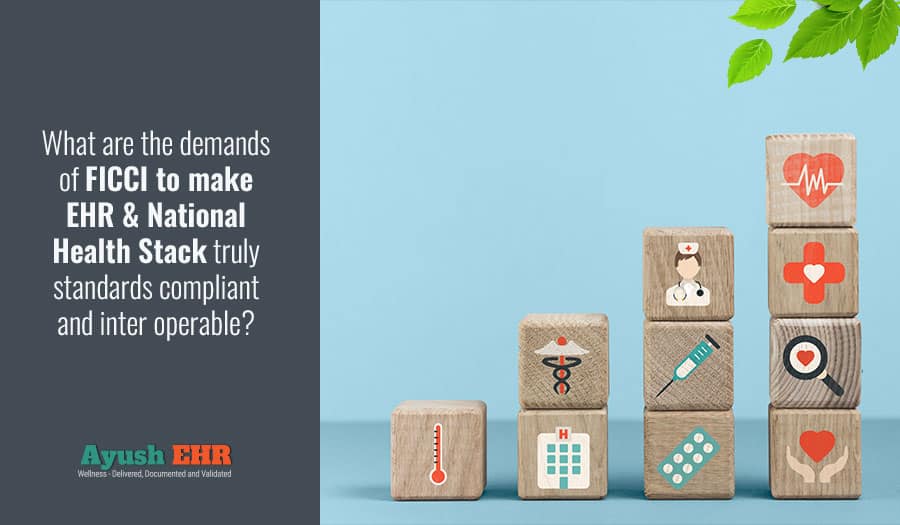What are the demands of FICCI to make EHR & National Health Stack truly standards compliant and inter operable?

The implementation & use of EHR has been varied throughout the world. A technology system which was initially developed to log just the patient information in the mid-1960’s, has evolved over the years and will continue to do so. The objective of this routine tool for the delivery of healthcare has now merged with many other functionalities such as to optimize diagnosis, manage billing and pharmacy, clinical research, patient health tracking etc. In light of this rapid evolution of EHR systems, FICCI has outlines a series of measures to make the proposed NHS truly inter operable effective and deliver universal health coverage for Indian citizens.
Initiatives from the government that has prompted this response form FICCI
Before discussing the response from the Federation of Indian Chambers of Commerce and Industry, let’s take a look at the basis of these demands.
In July 2018, the Niti Ayog presented the National Health Stack. This was a digital framework that was meant to enable a wellness-oriented health care for India, as opposed to the current illness-focused approach. It was an initiative meant to create a holistic platform for delivery of healthcare at scale required for a country like India and to work as the backbone for the digital healthcare initiatives of the government.
After a year, in August 2019, the National Digital Health Blueprint draft was released by the Ministry of Health and Family Welfare for public discussion. This was meant to create an implementation framework for the NHS 2018.
In response FICCI has formulated a set of inputs for the NHS 2018 structure to make it more robust and designed for the future.
The inputs provided by the FICCI on the NHS
- To set up strict EHR standards that can allow interoperability through open API’s and to bring about automation in managing claims and arbitration.
- Include standards for the ‘Mechanisms of Anonymisation’ in the EHR standards of India, 2016.
- Mandate data protection measures for the security and safeguard of public health data using open-source softwares.
- Bring about ‘Audit trail’ instead of ‘Audit trace’. This would document every activity over the system and also help in setting up a robust risk management environment to reduce data leak.
- The design of the platform must have multi-levelled surfaces that could cover the massive population of India. It must be dual-controlled by the centre and the states.
- The patient must have the ‘Right to be forgetten’ i.e to opt-out of the collection & maintenance of medical data.
- Include a section for insurance claims and services. Central or state level eligibility criteria should be available on the platform deending upon the economic strata of the individual.
- The specific structural framework must be set up to register insurance claims from insurance companies or TPA’s for smooth functioning of the claims processing system.
- Tracking and manage versions of clinical data. Any changes/alteration to the existing health date should be versioned to identify manipulation of data.
We have leveraged our long international experience with EHR system development and deployment to create AyushEHR as per the best practices of the industry. When it comes to clinical information management, we already deliver on most of the demands from FICCI. Our data repository(EHR.Network) is privacy enabled by design and has a versioned OpenEHR Clinical Data Repository(CDR). We are making fast progress in the areas of patient consent, data anonymization etc., well ahead of the rest of the industry and regulation.
We believe in keeping abreast of the developments happening in and around the HIT field and incorporating them into the systems that we offer to our customers. With AyushEHR, you are never behind.


